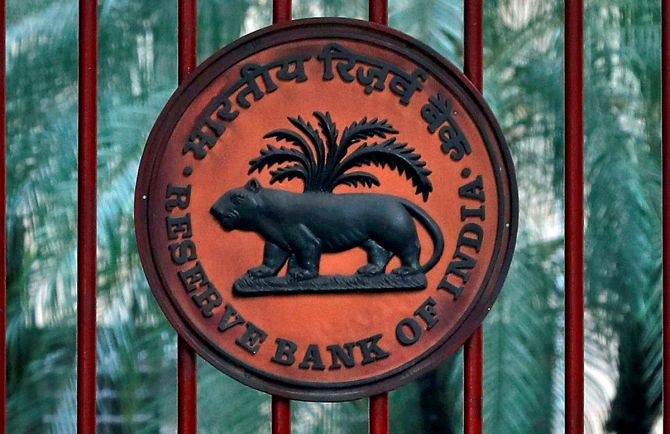The Reserve Bank's rate-setting panel, Monetary Policy Committee (MPC), began its three-day deliberations on Wednesday amid expectations of a status quo on benchmark rate mainly on account of uncertainty over the impact of the second wave of COVID-19 pandemic.

Moreover, the fears of firming inflation may also refrain the MPC from tinkering with the interest rate in its bi-monthly monetary policy outcome to be announced on Friday.
The RBI had kept key interest rates unchanged at the last MPC meeting held in April.
The key lending rate, the repo rate, was kept at 4 per cent and the reverse repo rate or the central bank's borrowing rate at 3.35 per cent.
M Govinda Rao, chief economic advisor, Brickwork Ratings said the better-than-expected GDP numbers provide the much-needed comfort to the MPC on the growth outlook.
However, with the imposition of partial lockdown-like restrictions to contain the virus spread in several parts of the country, the downside risk on growth recovery has intensified, he said.
"Hence, the RBI is likely to continue with its accommodative monetary policy stance. Considering the risk of inflation emanating from the rising commodity prices and input costs, Brickwork Ratings expects the RBI MPC to adopt a cautious approach and hold the repo rate at 4 per cent," he noted.
Dhruv Agarwala, Group CEO, Housing.com, Makaan.com and Proptiger.com believes the RBI can maintain its accommodative stance in light of the economic impact of the second wave of COVID-19, without endangering its key goal of keeping inflation under control.
Reviving growth has become an important objective due to the economic damage caused by the recent lockdowns, he said, and added the RBI should also consider providing more liquidity to the National Housing Bank to enable the stability of housing finance companies, which in turn will allow the real estate sector to expand.
Shanti Ekambaram, group president – consumer banking, Kotak Mahindra Bank was of the view that in the current environment, the choices before the Monetary Policy Committee may be limited.
"With the second phase of the pandemic impacting consumption and growth, the MPC will likely maintain status quo on policy rates, continue with an accommodative policy stance and ensure adequate liquidity in the system – all in an effort to stimulate growth.
"While it will keep one eye on inflation levels on the back of rising global commodity prices, it currently will focus on supporting economic growth," Ekambaram said.
According to Sandeep Bagla, CEO of TRUST AMC, "It is expected to be a no change policy, with continued economy friendly soft interest rate bias."
The RBI annual report released last week has already made it clear that "the conduct of monetary policy in 2021-22, would be guided by evolving macroeconomic conditions, with a bias to remain supportive of growth till it gains traction on a durable basis while ensuring inflation remains within the target."
The Reserve Bank, the report added, would ensure that system-level liquidity remains comfortable during 2021-22 in alignment with the stance of monetary policy, and monetary transmission continues unimpeded while maintaining financial stability.
In the assessment of the RBI, the evolving CPI inflation trajectory is likely to be subjected to both upside and downside pressures.
The food inflation path will critically depend on the temporal and spatial progress of the south-west monsoon in 2021.
The government has retained the inflation target at 4 per cent with the lower and the upper tolerance band of 2 per cent and 6 per cent, respectively, for the next five years (April 2021 - March 2026).
Retail inflation, based on Consumer Price Index (CPI), slipped to a three-month low of 4.29 per cent in April mainly on account of easing of prices of kitchen items like vegetables and cereals.
The RBI mainly factors in the CPI while arriving at its monetary policy.
As per the RBI annual report, supply-demand imbalances may continue to exert pressure on food items like pulses and edible oils, prices of cereals may soften with bumper foodgrains production in 2020-21.











 © 2025
© 2025